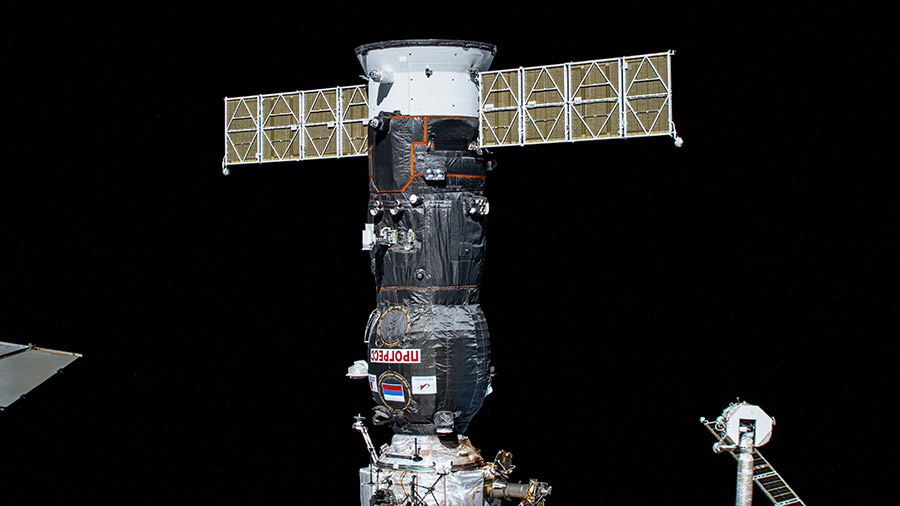Crew Keeps Up Advanced Research Ahead of Cargo Mission Swap

The Expedition 70 crew is continuing its advanced life science work today while gearing up for a cargo mission swap at the International Space Station this week. Meanwhile, the orbital residents also ensured exercise equipment and life support systems remain in good operating condition.
The ageing and immunity research taking place aboard the orbital outpost today is using the microgravity environment to gain biomedical insights impossible to achieve on Earth. Cells respond differently to weightlessness helping doctors understand how a variety of organisms from plants to astronauts adapt to life in space. Observations from the space biology experiments may provide advanced therapies to treat ailments on Earth and promote astronaut health on long-term missions.
NASA Flight Engineer Loral O’Hara started Tuesday wearing a vest and headband loaded with sensors that will record her health status for 48 hours. She will answer questions and download the medical data for the CIPHER human research experiment that is observing the long-term physiological and psychological effects of living in space. She then processed brain cell-like samples for the Cerebral Ageing study that seeks to understand accelerated ageing processes and neurodegenerative conditions, and possibly advance research techniques and drug development.
ESA (European Space Agency) Commander Andreas Mogensen removed blood samples from the Kubik incubator for spinning in the Human Research Facility’s centrifuge. After the samples were processed he placed them in a science freezer for later analysis for a study investigating cellular immunity in space.
NASA Flight Engineer Jasmin Moghbeli spent some time on SpaceX Dragon cargo operations then moved onto testing the operation of the COLBERT treadmill following Monday’s inspection and cleaning activities. Astronaut Satoshi Furukawa of JAXA (Japan Aerospace Exploration Agency) replaced components inside a device that scrubs carbon dioxide from the space station’s atmosphere.
The Roscosmos Progress 86 resupply ship rolled out to its launch pad today at the Baikonur Cosmodrome in Kazakhstan. The rocket, loaded with nearly 5,600 pounds of cargo, is due to launch at 4:25 a.m. EST on Thursday and automatically dock to the Poisk module at 6:14 a.m. on Saturday. Cosmonauts Oleg Kononenko and Nikolai Chub worked together on Tuesday preparing for its arrival. The duo installed and trained on hardware to monitor the approaching cargo craft and remotely control it if necessary.
The Progress 86 is replacing the Progress 84 spaceship that has been docked to Poisk since May 24. Progress 84, packed with trash and obsolete gear, will depart the station at 2:55 a.m. on Wednesday for a fiery, but safe reentry and disposal above the south Pacific Ocean about three-and-a-half hours later.
There was still plenty of time for research aboard the Roscosmos segment of orbiting lab on Tuesday. Kononenko studied futuristic spacecraft and robotic piloting techniques while Chub explored how electrical and magnetic fields in space may affect fluid systems. Cosmonaut Konstantin turned on an experiment to observe Earth’s nighttime atmosphere in the near ultraviolet wavelength then deactivated the gear following the study’s completion.
from Space Station https://ift.tt/XtkyumG
Comments
Post a Comment